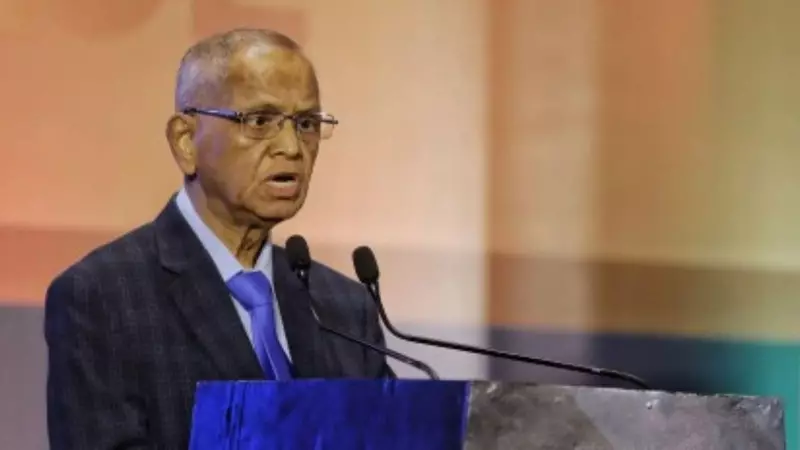
The Privilege Problem in Corporate Health Advice
American civil rights leader Martin Luther King Jr. once called injustice in healthcare the most shocking form of inequality. Today, that injustice manifests differently as corporate leaders from privileged positions dictate health norms to the masses, presenting personal opinions as transformative ideas while masking missionary zeal as genuine concern.
Recent days have seen a flood of statements from Indian business leaders about how people should manage their health and lives. Infosys founder N.R. Narayana Murthy revived his controversial 72-hour work week argument, citing China's 9-9-6 model (9 am to 9 pm, six days weekly) as justification for relentless work over health balance.
Meanwhile, Zoho CEO Sridhar Vembu urged young Indians to fulfill their demographic duty by marrying and having children in their 20s. Upasana Konidela, Apollo Hospitals' CSR vice-chairperson, advised young women at IIT Hyderabad to consider egg-freezing. Zomato's Deepinder Goyal sparked online debate with his research foundation's claims about gravity aging the brain.
The Reality Gap in Corporate Health Prescriptions
While these executives built remarkable business empires, that success doesn't grant them authority to normalize conversations outside their expertise or overreach into personal health decisions.
Murthy's work ethic endorsement comes as Bengaluru's IT hubs witness increasing cases of young professionals suffering heart attacks and chronic illnesses. China itself abandoned the 9-9-6 work culture in 2021, recognizing its health consequences. Should stressful workdays truly define national productivity?
Vembu's family planning advice appears particularly tone-deaf when India's job market remains fiercely competitive, where even degrees don't guarantee employment without continuous upskilling. Asking youth to take on family responsibilities in their 20s before securing career stability or financial footing seems disconnected from ground realities.
For women, the decision carries even heavier consequences. Early pregnancy often means missing crucial career-building years, potentially denying them opportunities to excel professionally. Unless supported by generational wealth, few young Indians have the economic luxury for early family life.
The Accessibility Issue in Health Recommendations
The fundamental problem with blanket health suggestions at public forums is their top-down approach, often ignoring practical accessibility issues.
While Konidela's egg-freezing advice might empower women with fertility choices from her privileged position, many young women cannot afford procedures costing up to Rs 2.5 lakh per cycle, plus annual storage fees reaching Rs 50,000. Medical experts primarily recommend egg-freezing for women with conditions like cancer that affect fertility, and even then, it offers no guaranteed path to parenthood.
Why the automatic assumption that women over 30 cannot conceive naturally? Why not promote child adoption awareness, which remains low in India but offers hope to infertile couples?
Most neurologists have challenged Goyal's Gravity Ageing Hypothesis, noting the human brain's remarkable ability to regulate blood flow regardless of posture changes. Brain health actually depends on balanced diet, regular exercise, and adequate sleep - not avoiding gravity's pull. Ironically, Goyal's food aggregation platform isn't particularly known for promoting diet-friendly options.
Corporations frequently invest heavily in lobbying, campaigns, and research funding to influence health policies favoring their interests. Can Goyal honestly claim his brain health statements didn't generate buzz for his research foundation? Like longevity advocate Bryan Johnson using his body experiments to promote Project Blueprint, or Konidela's advice aligning with Apollo Hospitals' fertility specialty centers, these recommendations often serve commercial agendas alongside - or sometimes above - public health interests.
Corporations typically frame health as matters of personal choice and responsibility. However, genuine public health begins with ensuring healthcare access reaches the last mile. It cannot rely on isolationist recommendations or social media pronouncements. Public health represents careful, considered practice - not cursory news grab moments that overlook systemic barriers to wellness.





